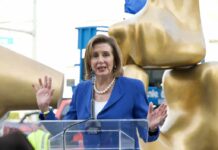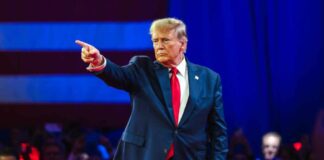
Richard Galanti, Costco’s CFO, recently commented on a subtle yet concerning trend in consumer habits. As the cost of goods continues to rise, Costco patrons are substituting less expensive alternatives, including chicken, pork, and canned products, for more costly meats like steak and beef. Such behavior recalls past recession periods, suggesting an unsettling economic forecast for the country.
“Going back 20 years,” Galanti noted, “we would see some sales penetration shift from beef to poultry and pork” during a recession. And now, we’re witnessing this trend once again. Alongside this, customers also favor Costco’s less expensive Kirkland Signature brand over name brands, indicative of a growing bargain-hunting mentality.
These shifts are not isolated to the meat aisle either. A 3.5% decrease in transactions involving “bigger-ticket nonfood discretionary items,” such as furniture and televisions, further suggests tightening purse strings. Galanti rightly observes, “We’re not only comparing against this ‘recession’ or concerns about big-ticket items but comparing against uber strength over the last two years prior to that.”
🇺🇸 Costco CFO says customers switching from beef and steak to cheaper meats may indicate looming recession https://t.co/Guy5u67jQc
— Neil Saunders (@NeilRetail) June 4, 2023
This shift in consumer habits is recognized in economic terms as the “substitution effect.” As prices increase or incomes decrease, consumers replace more expensive goods with cheaper alternatives, effectively reining in spending while maintaining certain product choices. However, the caveat is that this substitution effect may limit product choices and quality. This trend is a valuable economic barometer, especially when forecasting economic downturns.
And while customers adjust their consumption patterns, the New York Times seems committed to shielding Joe Biden from any blame for rising grocery prices. Instead, the paper points the finger at the grocery stores themselves, arguing that corporate giants are the real culprits behind these price hikes due to their dominant market share. However, as consumers’ experiences and Costco’s revelations suggest, the problem is pervasive, affecting both big and small retailers.
The paper’s narrative dismisses the notion that the Democratic administration’s policies, such as excessive spending and money printing, could factor in inflation and subsequent price increases. Instead, the blame is shifted away from political responsibility and onto the corporate sector, a debatable narrative at best.
Inflation is undeniably impacting the prices of cars, groceries, energy bills, and more. However, ignoring the potential political factors contributing to this is intellectually dishonest and potentially damaging to the American consumer and the economy.
As the country navigates the complexities of this potential economic downturn, it is critical to examine all contributing factors, including governmental policies and their impacts. Only then can we address these challenges head-on and protect the future of the American economy.

































